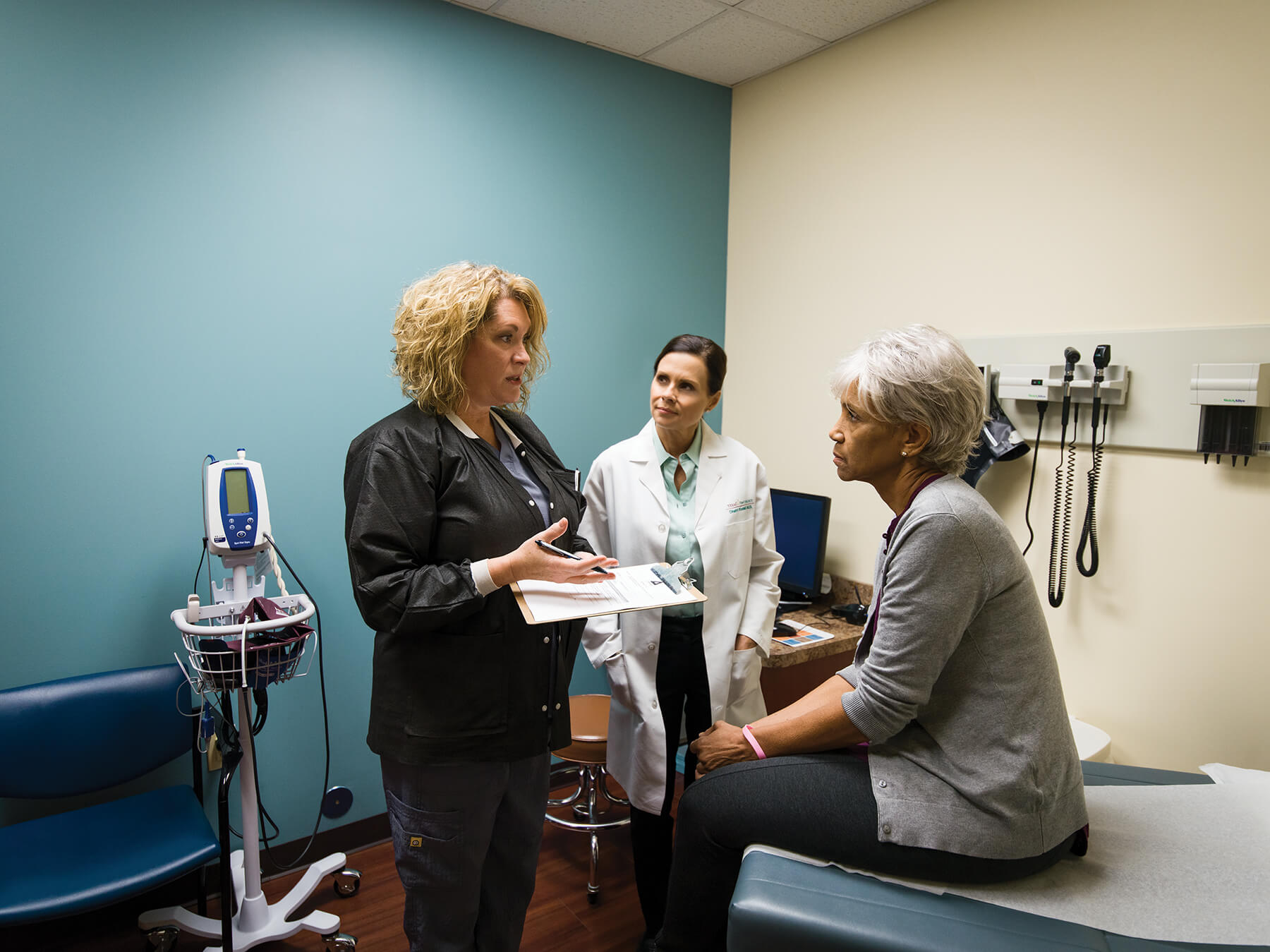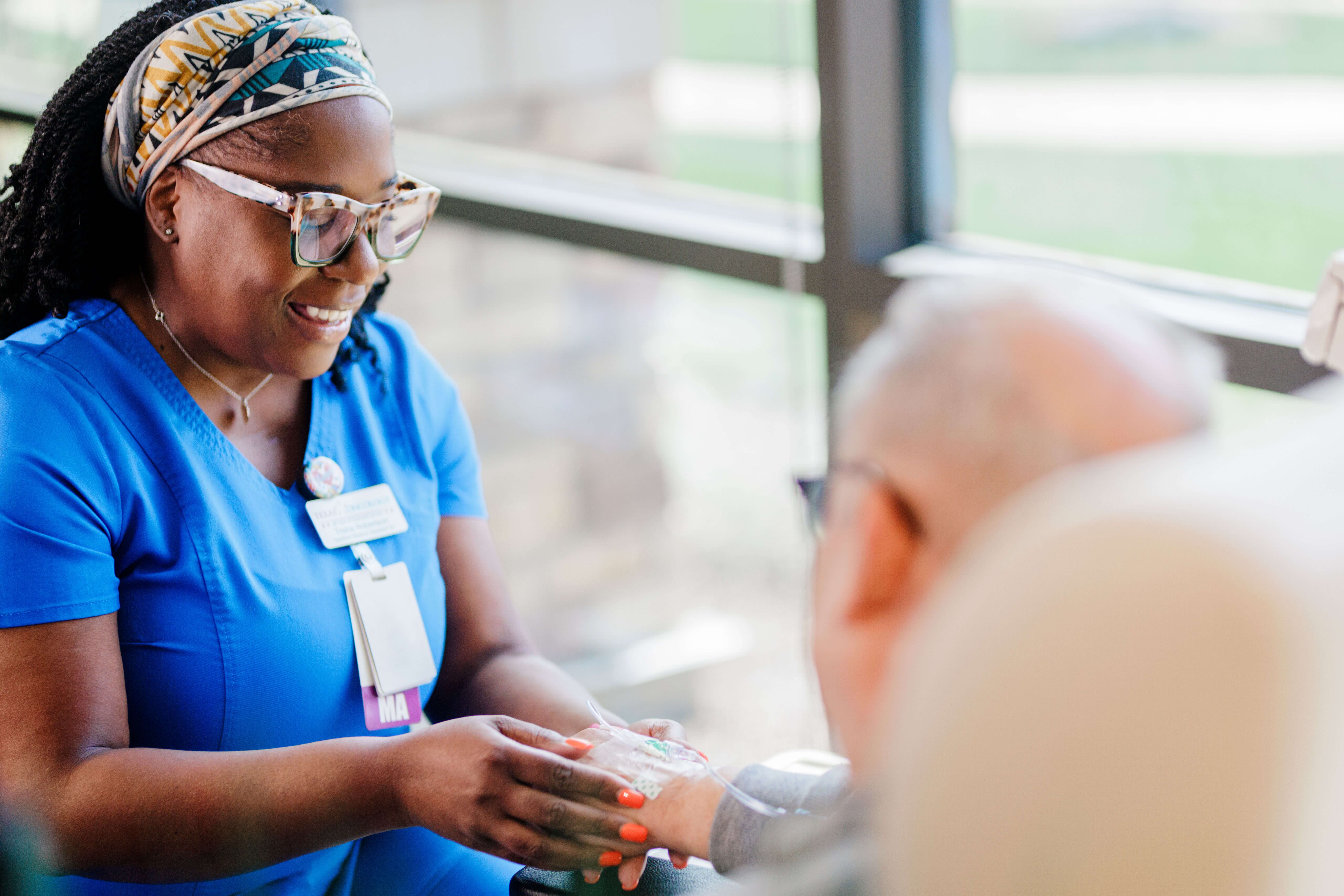« Back to Blog
The US Oncology Network Enables World-Class Genetic Services through Its GREAT Program
Public awareness of hereditary cancer syndromes has come to the forefront over the last several years, due in part to celebrity disclosures. Community-based oncology practices play an increasingly important role in identifying patients and families who are at hereditary risk for cancer.
Preventing cancer, not just treating it
Genetic testing is an important part of comprehensive cancer care. Testing is an opportunity to provide cancer prevention strategies to patients with a hereditary risk of cancer. A defined genetic risk evaluation program enables practices to do more than just treat the disease. For many people that carry mutations, there are both preventative and patient management consensus guidelines for their care. Likewise, some patients whose testing does not reveal a hereditary mutation may still require a management plan based upon their family history.
An established genetic testing program has the potential of not only helping the patient, but also at risk family members. A hereditary risk assessment with a three generation pedigree can identify potential risk within a family even if there have been uninformative genetic results.
The Genetic Risk Evaluation and Testing program
According to the National Cancer Institute, inherited genetic mutations are linked to approximately 5 to 10 percent of all cancers, and more than 50 hereditary cancer syndromes have been associated with mutations in specific genes.1 Recognizing this high-risk population was underserved, in 2007 a group of physicians in The US Oncology Network (The Network) with advanced genetic expertise collaborated to develop a formalized genetic program, The Genetic Risk Evaluation and Testing (GREAT) program.
The GREAT program provides a framework for practices to successfully implement genetic evaluation and testing based on best practices. The framework provided by GREAT helps a practice plan and implement critical aspects of a genetics risk evaluation program, such as identifying who should conduct genetic counseling, how practices should bill to ensure reimbursement, identifying which panel tests to use for which patients, and guidance on how to build a robust genetics database.
Program experts work with practices to develop a customized approach to deliver the following components to patients:
- An initial consultation by trained staff to gather family history, educate the patient and evaluate risk.
- Genetic testing after a thorough risk assessment using a variety of techniques.
- A follow-up consultation to discuss findings, educate the patient and address personal concerns.
- A proactive, individualized care plan for patients who test positive for genetic mutations. Options may include chemoprevention, surveillance or preventative surgery. The impact on family members is also discussed.
Contributing to genetics research
Through the GREAT program, The Network is playing a significant role in genetics research. With extended next generation sequencing, we have seen a significant rise in Variations of Uncertain Significance (VUS) – a variant form of a gene in which we do not know its significance to the health of the patient. VUS detection and reporting by genetics companies can be unsettling to patients and they have the potential to be misunderstood by providers. A VUS is a variation that is reported but, by current knowledge, should not lead to surgical or medical intervention. The Network is collecting data on VUSs and doing long-term follow up with patients to help determine their significance, advancing the knowledge-base within the oncology community.
Practices also benefit
Genetic testing offers benefits to practices, as well as patients. Since treatments are now available for some cancers linked to specific mutations, genetic testing enables practices to deliver personalized cancer care that helps patients achieve optimal outcomes. Practices with genetic testing programs are leaders in cancer care and comprehensive genetic services are a valuable resource for the entire medical community, including referring physicians. Additionally, people who test positive for mutations will likely rely on the practice that identified their mutation if they do need cancer care.
Build a world-class program with GREAT
All practices in The Network can efficiently implement genetic counseling and testing with the GREAT program. Practices considering offering these services may be worried about costs and managing various aspects of the program, but they can rely on the experience, extensive knowledge-base and innovative resources of The Network to provide a strong foundation to help ensure success. The Network offers a variety of implementation models for the GREAT program, including those utilizing physicians, Advanced Practice Providers or genetic counselors in the counseling role. The Network works closely with practices to customize an operational model to meet their needs.
John Sandbach, M.D. GREAT program co-founder
Medical Oncologist/Hematologist, Texas Oncology
1. https://www.cancer.gov/about-cancer/causes-prevention/genetics

